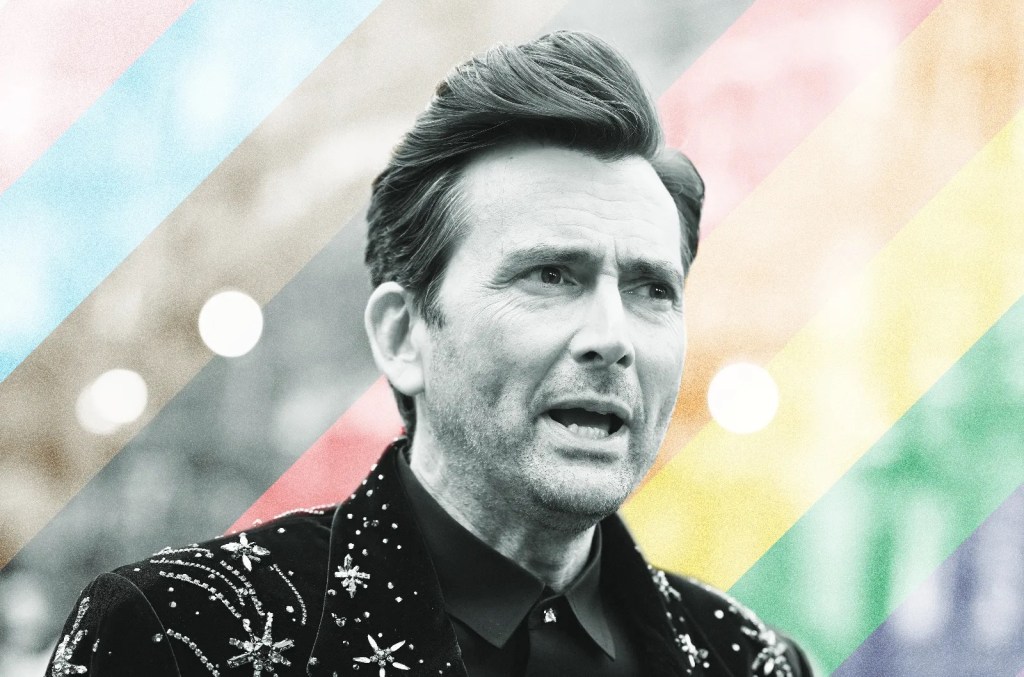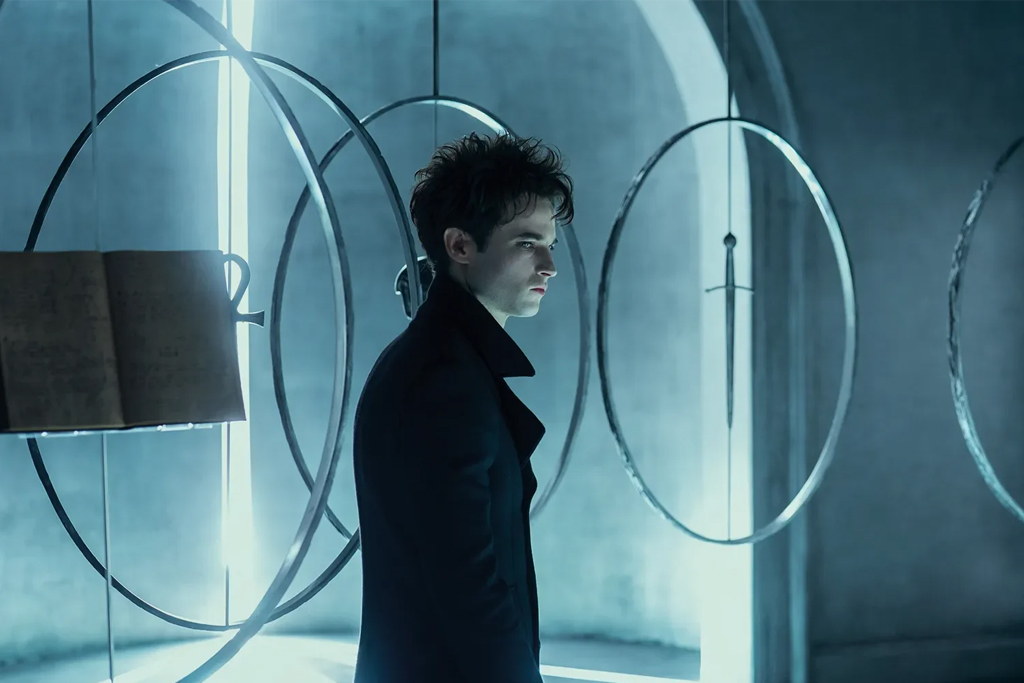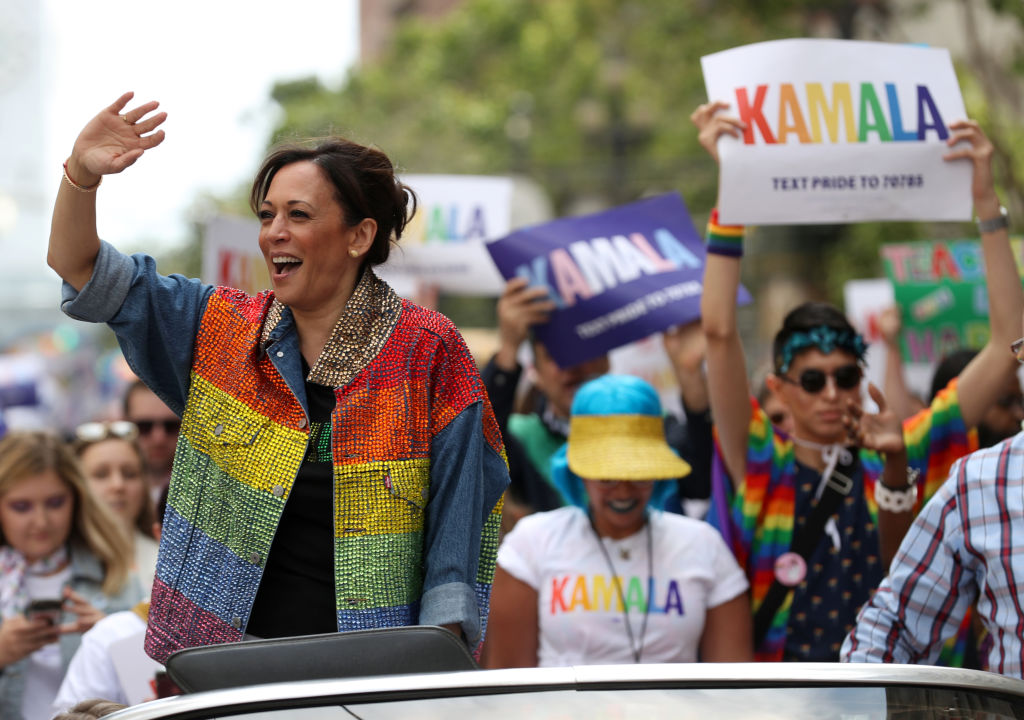As all non-bigoted readers will know, this is the holy and most ancient month of Pride. The time of year when — like our ancestors of yore — we bedeck our banks, supermarkets and public buildings with the latest variant of the rainbow flag. For a while now, the flag has kept coming with added details, such as circles, triangles, squares and other ways to provoke epilepsy, all because some people felt the old “inclusive” flag was not inclusive enough.
So it had these extra bits added to celebrate everyone from gay men to asexuals and anything in between. In recent times, these in-betweeners have included “nonbinary” and “two-spirit” people — two groups that are especially interesting since nobody had heard of the concepts until a few years ago, yet now we must accept that they too are anciently recognized groups. What the flag is meant to remind us is that nobody will be free until everyone who has just invented an identity can have that identity not merely affirmed, but celebrated by a flag flying from every building in the land.
There is another way of seeing all this of course. Which is to realize that it has gone far too far, that most of us are thoroughly bored of it, and that it would be a good thing if the whole shebang stopped. (Shebang, incidentally, is not another identity group.)
A couple of weeks ago a straight woman in America actually said “Happy Pride” to me. I must admit it almost completely floored me. I was suddenly overcome by grief, regret and embarrassment. “You don’t have to say this,” I wanted to say. “None of us really believe in it, apart from a few freaks with blue hair, plus all western corporations. Everyone else just wants to be left alone.” But it was too late. She had vanished, holding on to the delusion that Pride is indeed a much-vaunted celebration that is endorsed by all gay people and must be ritually acknowledged by straights.
It is strange, this adoption of “pride” as the term to use about sexual identity. Long-term readers will know I have always taken the view that if there is something that you should not feel shame in, there is no reason why anyone should take “pride” in it either. If sexual orientation is morally neutral and should not be a source of shame, then why should it be a source of pride? Besides which, pride used to be regarded as a sin. Even if people don’t have any truck with the religious origins of this idea, they might understand why it is listed among the seven deadly sins — and why almost every phrase that involves the word “pride” deploys it as a source of moral warning rather than of moral improvement. “Pride goeth before a fall,” for instance, is not an invitation to look forward to a fall by having an outburst of pride beforehand.
As I have watched the ever-lengthening festival of Pride (from a parade, to a day, to a weekend, to a week, to a month), it has sometimes occurred to me that the only way it could be kept in any kind of check is if it were to be followed by some gay form of Yom Kippur (day of atonement) in which everyone who had too much pride acknowledges it in a day of self-flagellation and remorse. Well, remorse anyway.
Instead, with each year that passes something happens that confirms the entire thing has got wildly out of hand. This year there was a little prelude in the form of the Eurovision Song Contest. Technically, Europe’s annual festival of musical satire is not connected to Pride. In reality, the two have become inextricably linked. And never more so than this year when the Irish entrant was only one of several contestants who declared themselves “queer.”
“Queer” is a strange one. Not so long ago, it was solely pejorative. But in recent decades some gays decided to reclaim it for themselves. Not everybody agreed. In time, though, it proved a handy divide. On the one hand were the gays, who just wanted to get on with their lives. On the other hand were the “queers,” who wanted to use their sexuality as a way to bring down everything in society — from the patriarchy to capitalism. Revolutionaries, in other words.
Any sensible gay person should want to keep a million miles away from these people. And the singer of the Irish Eurovision entry proved why. A hideously scrawny, mangy-looking swamp creature, she had a voice like sandpaper and a personality that was rougher. She was a self-declared “witch” and also “queer.” In fact she is straight and has a boyfriend. Nevertheless she kept poking her tongue out and screaming “The queers are coming” and the like. Which is lovely for the actual gay teenagers and their parents.
This week another odd, scrawny, Celtic heterosexual assumed a similar mantle. David Tennant was receiving a British LGBT Award. I don’t know who organizes this, but it is sponsored by every cynical corporation from Tesco to HSBC.
During his acceptance speech, Tennant referred to the Conservative MP Kemi Badenoch. To whoops from the crowd, he talked the usual pabulum about everyone being whatever they say they are. Which is to say that if a child says they feel slightly feminine or boyish you should put them on drugs and then chop their bits off. Tennant seems to believe this and lamented how bigoted the world is “until we wake up and Kemi Badenoch doesn’t exist any more.” He went on, hilariously: “I don’t wish ill of her, I just wish her to shut up.”
It is hard to think of any other situation in which such intolerant and ugly language would be used, let alone of a black woman. But Tennant felt emboldened to say it because he had been anointed an “ally” or honorary “queer” by whatever disastrous body hands out these trophies. It is time to realize that too much goes on under the guise of “pride.” Including prejudice.
This article was originally published in The Spectator’s UK magazine. Subscribe to the World edition here.


























Leave a Reply